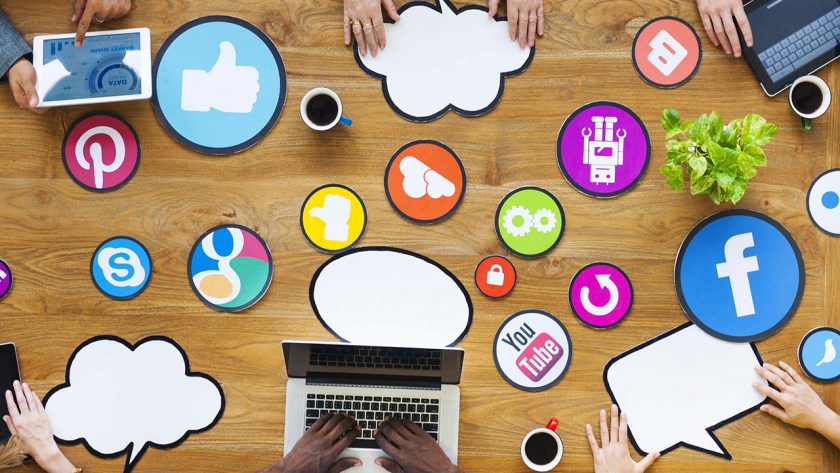Social Media has revolutionized how we connect and live our lives. There are many benefits to social media mass adoption. Families and friends can combine much more easily. You can quickly make essential people, messages, stories, and events known. Individuals can make and do things like never before. Businesses can quickly and economically connect with their target audience.
 Also, social media usage and operation without ethical and humane approaches can lead to adverse effects. It is easy to be distracted, less productive, and less focused as a consumer. There are no boundaries, and we can be overwhelmed with content from social networks and other sources. Overly persuasive content or aggressive user behavior in messaging or commenting can cause a change in our mood and behavior.
Also, social media usage and operation without ethical and humane approaches can lead to adverse effects. It is easy to be distracted, less productive, and less focused as a consumer. There are no boundaries, and we can be overwhelmed with content from social networks and other sources. Overly persuasive content or aggressive user behavior in messaging or commenting can cause a change in our mood and behavior.
It is here to stay, but you don’t need to become addicted to it. Your mental and physical health and your personal and professional life can be improved by being aware of how you use social media. Here are ten ways you can be more conscious and responsible about social media as a user.
All Notifications Can Be Disabled
Turning off all notifications on social media is an excellent place to start. Yes, notifications are a constant source of information for FOMO (Fears of Missing out), which many people suffer from. However, even though you’re not missing any, you’re still distracted from work, family, and friends. Therefore, it’s better to plan times throughout the day to check your messages at least once each morning, afternoon, or evening. This will make sure you don’t have your phone with you all day.
Time to Watch
It is easy to become absorbed in scrolling through social media feeds and clicking from TikTok, Instagram, to Instagram. Sometimes, it can feel like you haven’t done anything of significance. However, a sweet spot has been identified by researchers when it comes to time spent on social media. The Journal of Social and Clinical Psychology reports that limiting your use to only 30 minutes per week can help you have better health, less loneliness, and less depression. Set limits on how long you spend on social networking. With an iPhone, you can monitor and get real-time reports.
Follow with a purpose
When you scroll through social networks, are you asking yourself, “Why am I following that person?” and “What is the point of it?”. If not, now might be a good time for you to consider who you follow. You can ask these questions and unfollow accounts if they don’t have a compelling reason to. It is also a good idea to remove funds or people that are negative, jealous, or compare your feed to their tweets or posts. It’s crucial that you only follow positive, inspiring, creative, joyous, and hopeful people. It’s also essential that you are aware that algorithms determine our social media feeds. These algorithms predict what you will see based on your interests.
Stop scrolling mindlessly
Scrolling on social media can feel like a machine of stimulation. Even if you have carefully curated your feeds, you might still find yourself scrolling for hours. It’s easy just to get lost in the spiral of procrastination. You compare yourself to everyone who has more followers, more fantastic photos and lives more enjoyable. Stop scrolling! Instead, click on the account or individual you wish to learn more information about. Make sure to clean up your feed, especially those accounts that you don’t know. This will decrease your scrolling time and have a positive impact on your mindset.
Beware of Clickbait
Fake news has become a massive problem in recent times. When scrolling through feeds, people are tempted to click hyperlinks that promote misleading or phony information. This is known as clickbait. Studies show that controversial headlines most likely generate clicks to sites like Facebook, Instagram, and Twitter. If you are thinking about getting ‘news from provocative headlines,’ it is best to step back and look at the website link. This will allow you to get factual information only from trusted sources.
You can monitor your emotions
There are positive aspects to social media. However, there can also be negative aspects. To live well, we seek out companionship and understanding. Being socially connected gives you a sense of belonging and joy. It also helps you feel self-worth. But, being socially disconnected or comparing oneself to others can hurt your emotional well-being and happiness. You should be aware of the impact social interaction can have on your moods, actions, as well as emotions. It’s easy to get caught up with the social cycle of what’s true and what’s false. It is essential that you remember that the images you see on social media are not always true to life. People use filters, effects, photoshop, and other techniques to create the illusion of perfection. The truth is, nobody is perfect.



